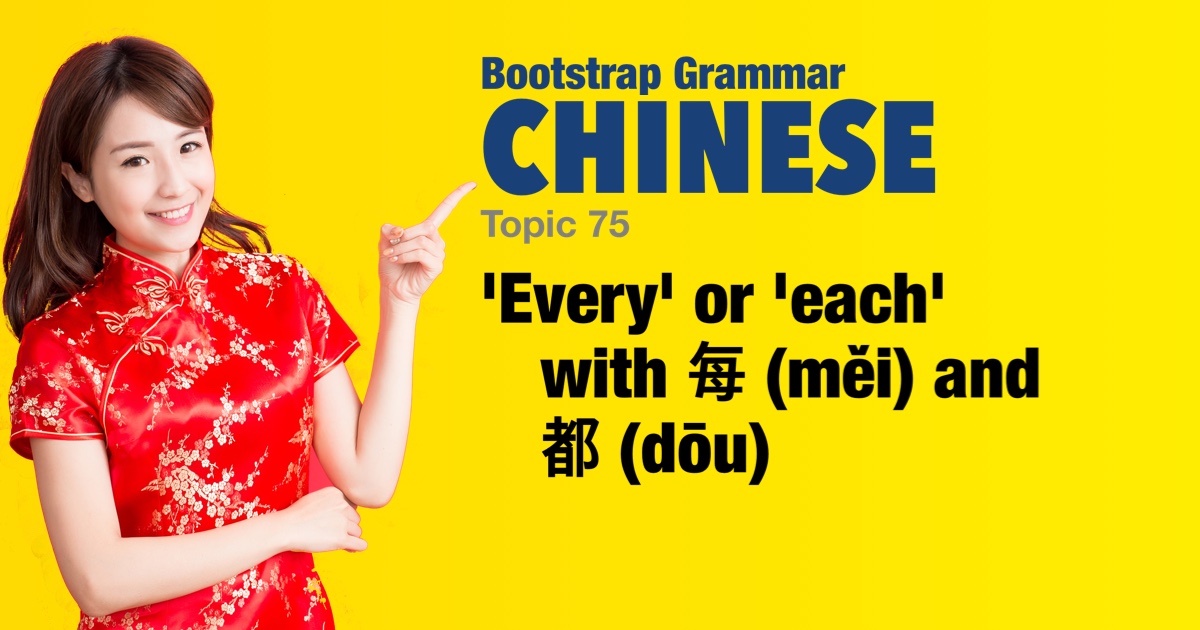Chinese grammar - 'Every' or 'each' with 每 (měi) and 都 (dōu) |
|||
|
|||
In Chinese, the word 每 can be used to mean 'every' in the sense of 'every' instance of some noun. In this usage, 每 is followed by a measure word and the noun. It is commonly used in combination with 都 (dōu) which stresses that the action or characteristic applies to all the members of that group. — While it is possible to form sentences with 每 without 都, adding 都 makes it clearer and more natural in Mandarin. |
| Examples: | |
|
每个学生都能说好英语。
měi ge xuéshēng dōu néng shuō hǎo yīngyǔ. Every student can speak English well.
|
|
|
每个人都有手机。
měi ge rén dōu yǒu shǒujī. Everyone (every person) has a phone. |
|
|
每本书都很有趣。
měi běn shū dōu hěn yǒuqù. Every book is interesting. |
|
|
每个盒子里的蛋都破了。
měi ge hézi lǐ de dàn dōu pò le. Every egg in the box is broken.
|
|
|
每个人都喜欢吃鱼吗?
měi ge rén dōu xǐhuān chī yú ma? Does everyone like to eat fish? |
|
|
每只狗都很可爱。
měi zhī gǒu dōu hěn kě'ài. Every dog is cute. |
|
|
每个工人都穿黄背心。
měi ge gōngrén dōu chuān huáng bèixīn. Every worker wears a yellow vest.
|
|
|
酒店里的每个房间都很小。
jiǔdiàn lǐ de měi ge fángjiān dōu hěn xiǎo. Every room in the hotel is small.
|
|
|
每次考试都很重要。
měi cì kǎoshì dōu hěn zhòngyào. Every exam is important.
|
|
|
我必须参加每次会议吗?
wǒ bìxū cānjiā měi cì huìyì ma? Do I have to attend every meeting?
|
|
|
商店里的每顶帽子都是红色吗?
shāngdiàn lǐ de měi dǐng màozi dōu shì hóngsè ma? Is every hat in the shop red?
|
|
|
城市里的每个公园都很拥挤。
chéngshì lǐ de měi ge gōngyuán dōu hěn yōngjǐ. Every park in the city is crowded.
|
|
|
他认识公司里的每个人。
tā rènshi gōngsī lǐ de měi ge rén. He knows everyone in the company. |
|
|
花园里的每朵花都很香。
huāyuán lǐ de měi duǒ huā dōu hěn xiāng. Every flower in the garden smells nice.
|
|
 |
|




